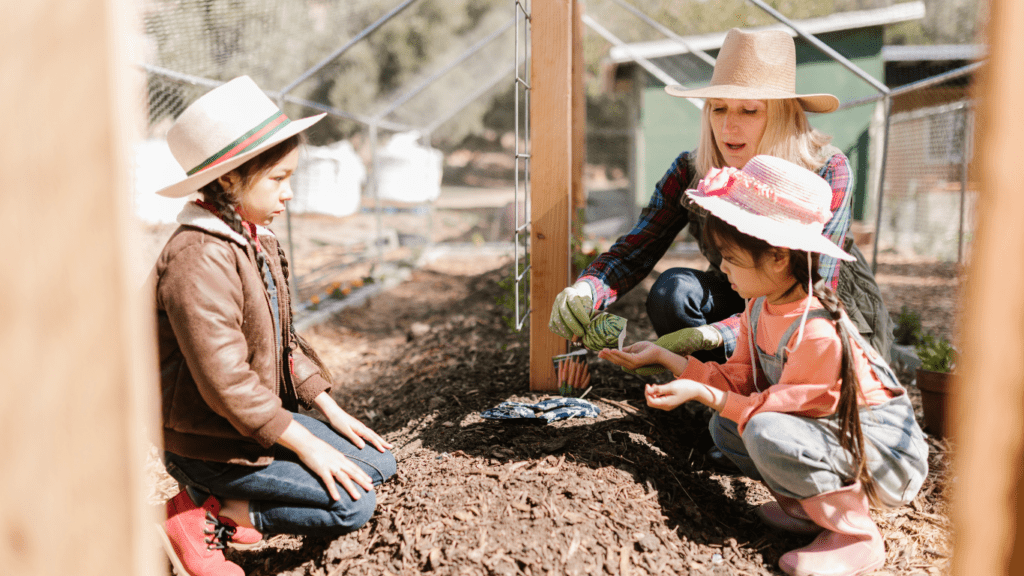As a passionate advocate for holistic well-being, I’ve always been fascinated by the profound impact of nature on our cognitive function. In my exploration of ways to enhance mental clarity and cognitive abilities, one activity stands out for its multifaceted benefits – gardening. The simple act of tending to plants not only nurtures the body but also cultivates the mind.
In this article, I delve into the powerful connection between gardening activities and cognitive function. From the therapeutic effects of soil on the brain to the cognitive challenges presented by planning and organizing a garden layout, there’s a wealth of evidence supporting the cognitive benefits of getting your hands dirty in the garden. Join me as we uncover the secrets to sharpening our minds through the beauty of gardening.
Understanding Cognitive Function and Its Importance
Exploring the cognitive benefits of gardening unveils the profound impact of nature on mental acuity. Tending to plants not only nurtures the body but also cultivates the mind, enhancing cognitive function in various ways. The therapeutic effects of soil on the brain are notable, as interacting with nature has been shown to reduce stress levels and improve overall mental well-being.
Engaging in the cognitive challenges of planning and organizing a garden layout can significantly boost cognitive function. This process involves problem-solving, decision-making, and spatial awareness, all of which are vital cognitive skills. By actively participating in these tasks, individuals can exercise their brains and promote cognitive health.
Understanding the importance of cognitive function is crucial for overall well-being. Cognitive abilities encompass various mental processes such as memory, attention, and reasoning, which are essential for everyday tasks. By enhancing cognitive function through activities like gardening, individuals can improve their mental sharpness, productivity, and quality of life.
Benefits of Gardening for Cognitive Enhancement
Gardening offers various advantages for improving cognitive function, benefiting attention, memory, and mental well-being.
Improvement in Attention and Concentration
Engaging in gardening tasks demands focus and attention to detail, promoting cognitive abilities related to concentration. The process of nurturing plants requires mindfulness, helping enhance attention skills over time.
Boosting Memory Through Routine Activities
Routine gardening activities like planting, watering, and pruning stimulate memory functions by creating consistent patterns and associations. These repetitive tasks strengthen neural connections, supporting memory retention and recall.
Stress Reduction and Mental Clarity
Gardening serves as a stress-relieving activity that promotes mental clarity. Being in nature and tending to plants can reduce cortisol levels, the stress hormone, leading to a calmer mind and increased clarity in cognitive functions.
The Science Behind Gardening and Brain Health
Gardening not only enhances the beauty of our surroundings but also plays a crucial role in improving brain health. As I delve into the science behind gardening and its impact on cognitive function, I explore two key aspects that contribute to this relationship: the effects of physical activity on brain function and the role of nature exposure in cognitive wellbeing.
Effects of Physical Activity on Brain Function
Engaging in gardening activities involves various physical movements such as digging, planting, and watering, which are essential for maintaining a healthy body and mind. These activities stimulate blood flow, improve cardiovascular health, and boost overall physical well-being. The combination of physical exertion and mental focus while gardening triggers the release of endorphins, also known as “feel-good” hormones, which help reduce stress and enhance mood. By incorporating regular physical activity through gardening, individuals can experience improved cognitive function, including sharper focus, enhanced memory retention, and increased problem-solving abilities.
The Role of Nature Exposure in Cognitive Wellbeing
Spending time in nature, as experienced during gardening, has proven benefits for cognitive wellbeing. Exposure to natural elements like fresh air, sunlight, and greenery has a calming effect on the brain, reducing mental fatigue and enhancing clarity of thought. Studies have shown that being in a natural environment promotes relaxation, reduces anxiety, and improves concentration levels. The peaceful and serene atmosphere of a garden can help alleviate stress and uplift mood, leading to a positive impact on cognitive function. By immersing oneself in nature through gardening activities, individuals can nurture their cognitive abilities and enjoy better mental health.
Practical Tips for Incorporating Gardening Into Daily Life
Starting a gardening schedule is crucial for making it a consistent part of my routine. It’s essential to allocate specific times during the day for different gardening tasks. For example, in the morning, I might water the plants and check for any signs of pests or diseases. In the evening, I could spend time planting new seeds or planning the layout for the garden.
When choosing cognitive-boosting plants for my garden, I prefer options known for their mental health benefits. Plants like lavender, rosemary, and sage not only add fragrance and beauty but also have calming properties that can help reduce stress and improve focus. Incorporating these plants into my gardening activities can enhance the cognitive benefits I reap from spending time in nature.
Profiles of Success: How Gardening Has Helped Others
Exploring stories of individuals who have experienced the cognitive benefits of gardening provides valuable insights into the real-world impact of this activity. It’s inspiring to see how gardening has positively influenced the lives of many, showcasing its potential as a practical tool for enhancing cognitive function.
These profiles exemplify the diverse ways in which gardening has positively impacted individuals’ cognitive function, highlighting its universal appeal and effectiveness as a tool for enhancing mental acuity and quality of life.
These profiles exemplify the diverse ways in which gardening has positively impacted individuals’ cognitive function, highlighting its universal appeal and effectiveness as a tool for enhancing mental acuity and quality of life.
- Marie’s Inspirational Journey
Marie, a retiree, shares how taking up gardening after retirement has been a game-changer for her cognitive abilities. Initially struggling with maintaining focus and feeling mentally fatigued, Marie found solace in tending to her garden. The daily routine of watering plants, pruning, and caring for her flowers not only improved her memory but also boosted her attention span. Marie’s success story highlights the transformative power of regular gardening in sharpening cognitive skills. - John’s Stress-Free Sanctuary
John, a busy professional dealing with high levels of stress, turned to gardening as a form of relaxation and cognitive rejuvenation. Amidst hectic work schedules and constant mental strain, John’s garden became his tranquil retreat. Engaging in gardening activities like planting vegetables and flowers helped him unwind, clear his mind, and refocus his thoughts. The meditative nature of gardening not only reduced John’s stress levels but also enhanced his cognitive clarity, enabling him to tackle work challenges with a renewed sense of mental acuity. - Sarah’s Therapeutic Oasis
Sarah, a student juggling academic pressures and deadlines, found solace in cultivating a small herb garden on her balcony. The act of nurturing her plants, observing their growth, and harvesting fresh herbs provided Sarah with a therapeutic escape from the demands of her studies. Breathing in the aroma of her herbs, like lavender and rosemary, not only calmed her mind but also improved her ability to concentrate during study sessions. Sarah’s experience underscores the cognitive benefits of incorporating gardening into daily routines, emphasizing its role in mental well-being.
These profiles exemplify the diverse ways in which gardening has positively impacted individuals’ cognitive function, highlighting its universal appeal and effectiveness as a tool for enhancing mental acuity and quality of life.

 Carolyna Riteralo is a passionate contributor to the project, focusing on sustainable urban development. With her background in architecture and urban planning, she provides valuable perspectives on integrating green spaces and eco-friendly designs into urban environments. Carolyna works collaboratively with the team to implement strategies that enhance community well-being and foster a connection with nature. Her dedication to creating greener cities makes her a vital member of the project, as she helps shape initiatives that promote resilience and improve the quality of urban life.
Carolyna Riteralo is a passionate contributor to the project, focusing on sustainable urban development. With her background in architecture and urban planning, she provides valuable perspectives on integrating green spaces and eco-friendly designs into urban environments. Carolyna works collaboratively with the team to implement strategies that enhance community well-being and foster a connection with nature. Her dedication to creating greener cities makes her a vital member of the project, as she helps shape initiatives that promote resilience and improve the quality of urban life.